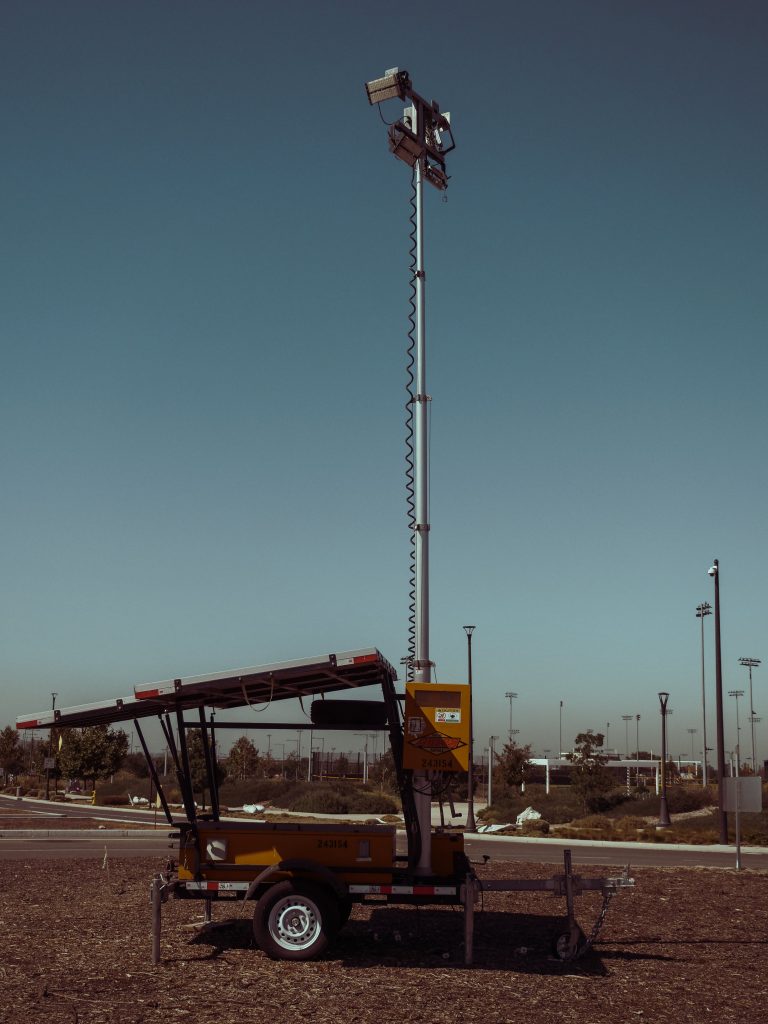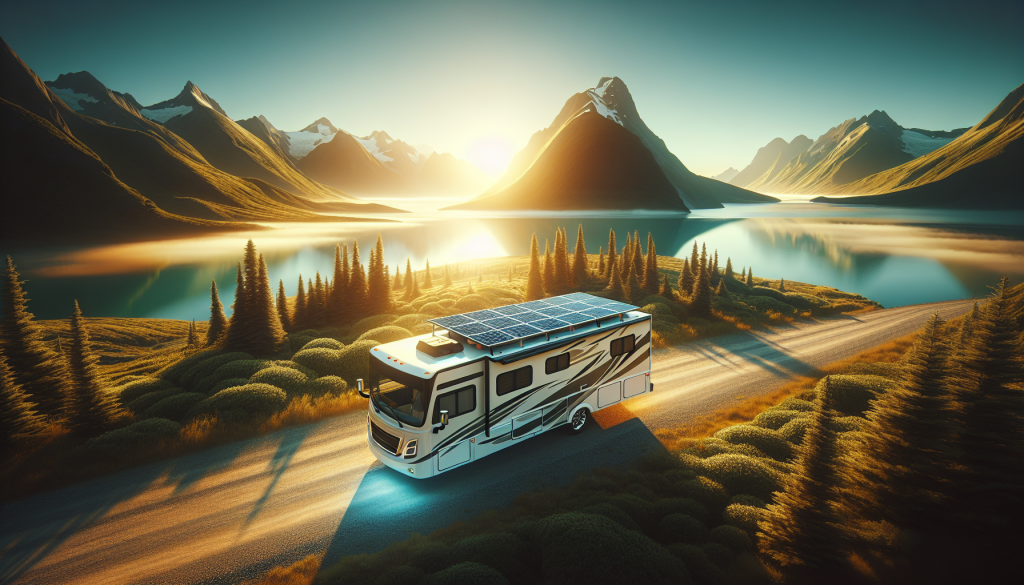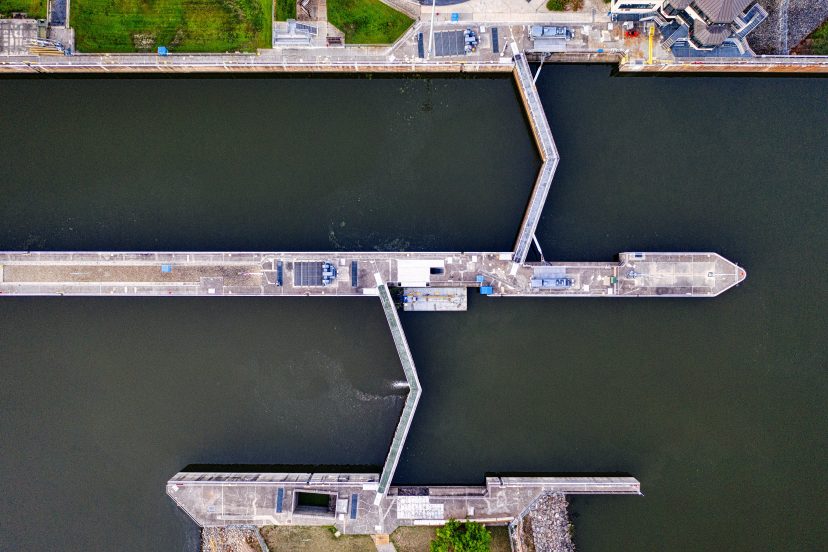How Much Solar Do I Need For My Rv
As an Amazon Associate, I earn from qualifying purchases, at no additional cost to you. Disclaimer
Whether you’re a seasoned RV enthusiast or a curious newbie, one question that may have crossed your mind is, “How much solar do I need for my RV?” With the soaring popularity of solar power in recreational vehicles, it’s no wonder this question is on the minds of many. In this article, I’ll provide you with practical insights and helpful tips to determine your RV’s solar power needs, putting you one step closer to harnessing the sun’s energy and embarking on countless adventures off the beaten path. So, let’s dive right in and shed some light on the subject!

Understanding Solar Energy for RVs
As an RV enthusiast, I have always been intrigued by the idea of harnessing solar energy to power my adventures on the road. Solar power is a renewable energy source that utilizes the sun’s rays to generate electricity, making it a clean and sustainable alternative to traditional power sources. In this article, I will delve into the basics of solar energy, explore the advantages and limitations of using solar power for RVs, and provide valuable insights into assessing your RV’s power needs.
Basics of solar energy
Solar energy is the conversion of sunlight into electricity using photovoltaic (PV) panels. These panels are made up of solar cells that consist of silicon-based materials. When sunlight strikes these cells, it excites the electrons within the material, creating a flow of electricity. This electricity can then be used to power various appliances and systems within your RV, providing you with a self-sufficient and eco-friendly energy source.
Advantages of using solar power for RVs
One of the key advantages of using solar power for RVs is the ability to live off-grid and become more self-sufficient. With solar panels installed on your RV, you can generate electricity no matter where your adventure takes you, without relying on traditional power sources or hookups. This not only gives you greater freedom and flexibility but also helps reduce your carbon footprint.
Another significant advantage of solar power for RVs is the potential for long-term cost savings. While the initial investment in solar panels and equipment may seem substantial, the energy savings over time can be substantial. By harnessing the power of the sun, you can significantly reduce or even eliminate your reliance on expensive campsite hookups or generator fuel costs.
Limitations and challenges of solar power for RVs
While solar power offers numerous benefits, it is essential to consider the limitations and challenges associated with this technology. The primary limitation is the availability of sunlight, which is necessary for solar panels to generate electricity. If you frequently travel to areas with limited sunshine or spend most of your time in heavily shaded locations, solar power may not be the most efficient or practical solution for your RV.
Additionally, RV solar systems require adequate space for the installation of solar panels. Depending on the size of your RV and the number of solar panels needed to meet your energy demands, you may need to make modifications to your vehicle to accommodate the panels. It is crucial to consider these practical aspects before deciding if solar power is suitable for your RV.
Assessing Your RV’s Power Needs
Before diving into the world of solar power for your RV, it is crucial to assess your power needs accurately. This involves calculating your daily energy consumption, understanding the power requirements of different appliances, considering seasonal variations, and evaluating the impact of the geographical location on energy demand.
Calculating daily energy consumption
To determine your RV’s energy consumption, start by making a list of all the appliances and devices you typically use on a daily basis. Consider the power rating (measured in watts) of each item and estimate the number of hours you use them per day. Multiply the wattage by the number of hours to obtain the watt-hours (Wh) consumed by each appliance daily. Sum up these values to get an estimate of your total daily energy consumption.
Understanding different appliances and their power needs
Different appliances and devices have varying power requirements. Some appliances, such as lights and small electronic devices, consume relatively low power, while others, like air conditioners or microwaves, consume significantly more. Understanding the power needs of each appliance will help you accurately assess your RV’s energy requirements and determine the number of solar panels needed.
Seasonal variations in power demand
It is important to consider seasonal variations in power demand when assessing your RV’s energy needs. In colder months, for example, you may require more power for heating devices, while in summer, the demand may shift towards cooling appliances like air conditioners. By taking these variations into account, you can ensure your solar power system meets your energy demands year-round.
Impact of geographical location on energy demand
The geographical location of your RV can significantly impact your energy demand and the effectiveness of your solar panels. Areas with more abundant and intense sunlight will generate more solar power, while locations with frequent cloud cover or less sunlight may result in reduced energy production. Consider the typical weather patterns and sunlight availability in the regions you plan to travel to ensure your solar power system can meet your energy needs.

Different Types of Solar Panels
Solar panels come in various types, each with its own unique characteristics and advantages. Understanding the differences between monocrystalline solar panels, polycrystalline solar panels, and thin-film solar panels can help you make an informed decision when selecting the right panels for your RV.
Monocrystalline solar panels
Monocrystalline solar panels are made from a single crystal structure, which makes them highly efficient in converting sunlight into electricity. They have a uniform appearance with a dark color and are known for their durability and longevity. Monocrystalline panels perform well in sunny conditions but may be less efficient in overcast or shaded areas.
Polycrystalline solar panels
Polycrystalline solar panels are made from multiple silicon cells, resulting in a distinctive fragmented appearance. While they are slightly less efficient than monocrystalline panels, polycrystalline panels are more cost-effective and perform better in lower light conditions. They are a popular choice for RV owners looking for a balance between performance and affordability.
Thin-film solar panels
Thin-film solar panels are made by depositing a thin layer of photovoltaic material onto a flexible surface. These panels are lightweight, flexible, and can be installed on curved surfaces, making them suitable for unconventional RV designs. However, thin-film panels are less efficient than crystalline panels and require more space to generate the same amount of electricity.
Comparing power output and efficiency among solar panel types
When choosing solar panels for your RV, it is important to compare the power output and efficiency of different panel types. Monocrystalline panels generally offer the highest efficiency and power output, followed by polycrystalline panels, while thin-film panels lag behind in terms of performance. Consider your energy needs, available roof space, and budget to determine the most suitable solar panel type for your RV.
How Many Solar Panels Do I Need?
Once you have assessed your RV’s power needs and selected the type of solar panels, it is time to determine the number of panels required to meet your energy demands.
Estimating energy generation from a single solar panel
To estimate the energy generation from a single solar panel, you need to consider its power rating (measured in watts) and the average daily sunlight hours in your location. Multiply the panel’s power rating by the number of sunlight hours to obtain the watt-hours (Wh) generated per day. This information will serve as the basis for calculating the number of solar panels needed for your RV.
Matching solar panel output with your RV’s energy demand
Next, compare the energy generation from a single solar panel to your RV’s daily energy consumption. By dividing your daily energy consumption by the energy generated per panel, you can determine the minimum number of panels required to meet your energy needs. However, it is recommended to add a buffer to account for potential losses and fluctuations, ensuring your solar power system can handle variations in demand.
Sizing your solar panel system appropriately
When sizing your solar panel system, consider practical constraints, such as available roof space, weight limitations, and budget. It is important to strike the right balance between energy production and available resources. Consulting with a professional installer or using online solar calculators can help you optimize your system and ensure you make the most of your solar investment.

Understanding the RV Solar Power System
To fully comprehend how solar panels integrate into your RV’s power system, it is crucial to understand the roles and functions of various components, such as charge controllers, inverters, and batteries.
How solar panels work in an RV
Solar panels generate direct current (DC) electricity when exposed to sunlight. This DC electricity is then converted into alternating current (AC) electricity using an inverter, making it compatible with common household appliances in your RV. Solar panels are typically mounted on the roof of your RV to maximize exposure to sunlight and generate electricity throughout the day.
The role of a charge controller
A charge controller is a crucial component in an RV solar power system. It regulates the flow of electricity from the solar panels to the batteries, preventing overcharging and over-discharging. Charge controllers also optimize the charging process, ensuring the batteries receive the right amount of power and extending their lifespan.
The function of an inverter in an RV solar system
An inverter is responsible for converting the DC electricity generated by the solar panels or stored in the batteries into AC electricity. This allows you to power standard household appliances, electronics, and devices in your RV. Inverters come in various types and sizes, depending on your power needs and budget.
Understanding batteries in solar power systems
Batteries are an essential component of an RV solar power system, as they store excess energy generated by the solar panels for use during periods of low sunlight or increased demand. Deep-cycle batteries, such as lead-acid or lithium-ion batteries, are commonly used in RV solar systems due to their ability to withstand frequent charge and discharge cycles.
Installation of Solar Panels on your RV
Installing solar panels on your RV requires careful planning and consideration to ensure optimal performance and safety.
Choosing the right location on your RV for solar panels
When selecting the location for your solar panels, opt for areas on your RV’s roof that receive maximum sunlight exposure throughout the day. Avoid shading from nearby objects, such as vents, antennas, or air conditioning units, as this can significantly reduce the panels’ efficiency. Additionally, consider the weight distribution and structural integrity of your RV’s roof to ensure it can support the added weight of the solar panels.
Installation process of solar panels
The installation process typically involves cleaning and preparing the roof surface, mounting the solar panels using brackets or adhesive, and securely wiring them to the charge controller. It is crucial to follow the manufacturer’s instructions and consult professional installers if necessary to ensure proper installation and avoid any damage to your RV or panels.
Safety measures during installation
While installing solar panels on your RV, prioritize safety to prevent accidents or damage. Use appropriate safety equipment such as gloves, safety goggles, and fall protection harnesses. Be cautious when working at heights and make sure to secure the panels properly to withstand wind, vibrations, and other external factors commonly encountered during RV travel.
Care and maintenance of solar panels
Regular care and maintenance are essential to ensure the optimal performance and longevity of your solar panels. Keep the panels clean by removing dirt, debris, or snow that may obstruct sunlight. Inspect the wiring connections periodically to ensure they are secure and free from damage. Additionally, monitor the charging parameters of your charge controller to optimize battery health and performance.

Costs and Finances of Solar RV Systems
When considering the installation of a solar power system for your RV, it is essential to understand the costs involved and the potential financial benefits.
Initial costs of solar RV system
The initial costs of a solar RV system include the price of solar panels, inverters, charge controllers, batteries, and installation labor if you choose to hire professionals. Additionally, you may need to consider costs associated with system design, permits, and equipment for wiring and mounting. While these costs may seem significant upfront, it is important to consider the long-term savings and benefits of solar power.
Long-term cost savings of using solar energy
Using solar energy for your RV can lead to substantial long-term cost savings. By generating your electricity, you can reduce or eliminate expenses spent on campsite hookups or generator fuel. Additionally, solar panels and other components have a long lifespan, generally lasting 25 years or more, minimizing the need for frequent replacements or repairs.
Potential financial benefits and incentives for solar energy usage
Depending on your location, you may be eligible for financial incentives and benefits for using solar energy. These can include tax credits, rebates, or grants that help offset the initial costs of installing a solar power system. Research local, state, and federal programs to determine if you qualify for any incentives, maximizing your return on investment.
Alternative Solar Solutions for RV
While traditional rooftop solar panels are the most common choice for RV owners, there are alternative solar solutions worth considering based on your specific needs and circumstances.
Portable solar panels
Portable solar panels provide a flexible and versatile solution for RV owners who value mobility and convenience. These panels can be easily deployed and positioned at various angles to maximize sunlight exposure. Portable solar panels are lightweight, compact, and foldable, making them ideal for RVers who prefer boondocking or frequently changing campsites.
Solar generators
Solar generators are standalone systems that combine solar panels, battery storage, and inverters into a single unit. These generators provide a convenient source of electricity, allowing you to power appliances and devices without any complex wiring or installation. Solar generators are a popular choice for RV owners looking for a portable and hassle-free solar solution.
Choosing between fixed and portable solar solutions based on your needs
When deciding between fixed rooftop solar panels and portable solar solutions, consider your RV lifestyle, power requirements, and travel preferences. Fixed rooftop solar panels offer a consistent and reliable power source for extended stays, while portable solar panels provide flexibility and adaptability for RVers on the move. Combining both options can also create a comprehensive solar power system that meets all your energy needs.

Troubleshooting Common Issues with RV Solar Systems
Like any other electrical system, RV solar systems may encounter occasional issues. Here are a few common problems and their solutions:
Dealing with inadequate power generation
If your RV solar system is not generating enough power, start by checking the positioning and cleanliness of the panels. Obstructions such as shading, dust, or debris can significantly affect energy production. Additionally, ensure that the wiring connections are secure and that the charge controller is operating correctly. If the problem persists, consult a professional to identify and resolve any technical issues.
Maintaining batteries in the solar system
Proper battery maintenance is crucial for the optimal performance and lifespan of your RV solar system. Regularly monitor the battery voltage levels and ensure they are not overcharged or discharged beyond recommended levels. Implement a regular charging routine to keep the batteries at their optimal state of charge. Consider investing in a battery monitor or management system to accurately track and maintain battery health.
Overcoming technical issues with inverters and charge controllers
Inverters and charge controllers are critical components of RV solar systems, and any technical issues should be addressed promptly. If you encounter problems with your inverter, such as no power output or erratic behavior, check the wiring connections and ensure the input and output settings are correctly configured. If you suspect a faulty charge controller, verify the input and output voltages and ensure the unit is operating within acceptable limits. Consult with a qualified professional if you are unable to resolve the issue on your own.
Conclusion: Is Solar Power right for your RV?
Considering all the factors, advantages, and limitations discussed, deciding whether solar power is suitable for your RV ultimately depends on your unique requirements and circumstances. Review the pros and cons of solar power for RVs, assess your power needs accurately, and factor in any financial considerations or incentives available in your area.
Armed with a comprehensive understanding of solar energy, you are well-equipped to make an informed decision about incorporating solar power into your RV. With the potential for independence, cost savings, and a reduced environmental impact, solar power can enhance your RVing experience and allow you to embrace a more sustainable and wholesome way of life on the road. So, go ahead and embark on your solar-powered adventure with confidence!




